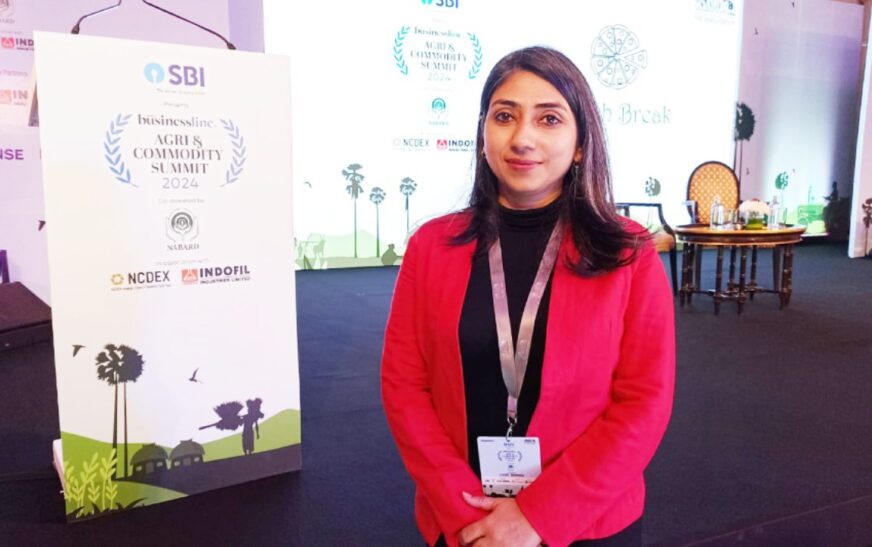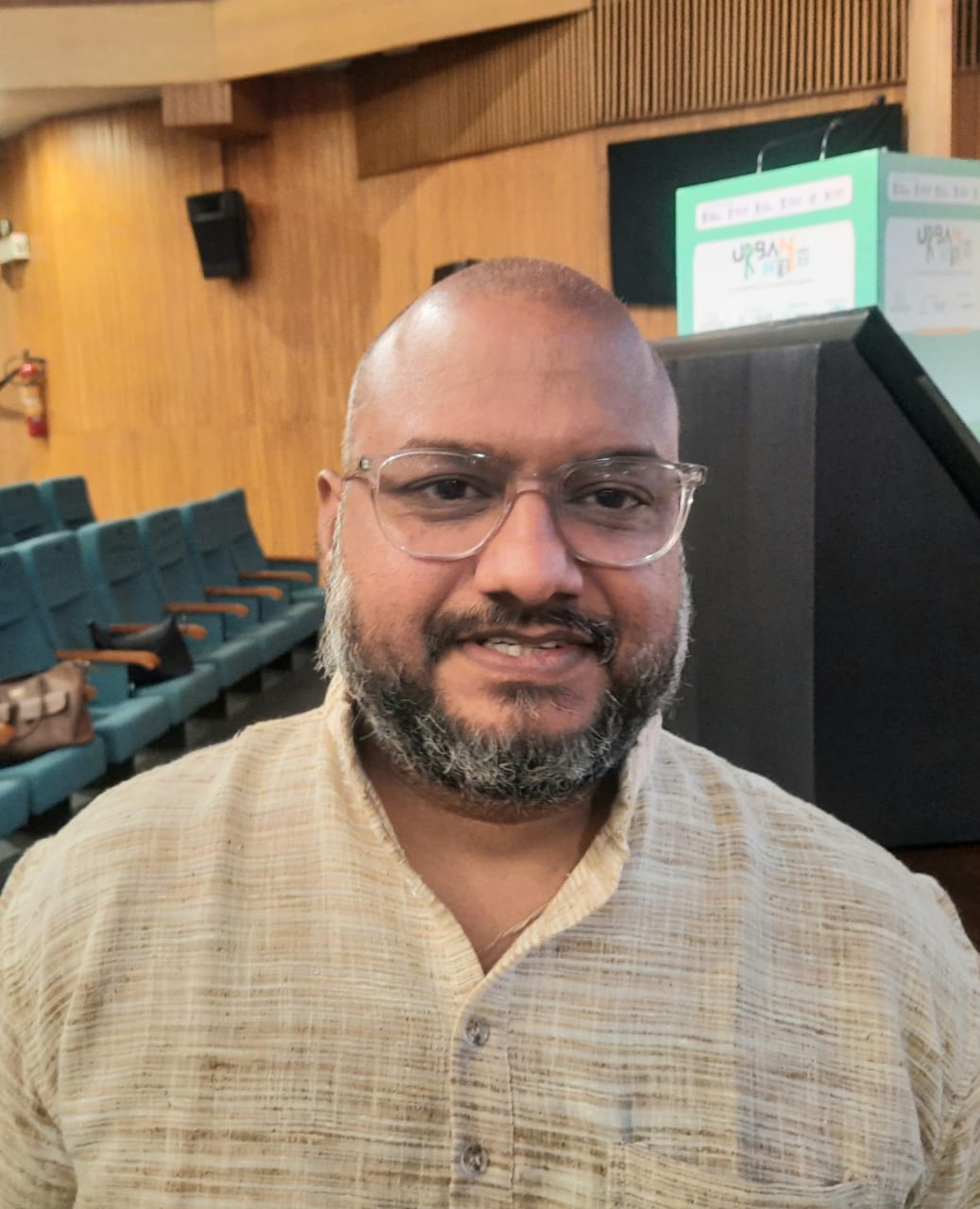Spowdi, an innovative greentech company, is at the forefront of driving the shift towards regenerative farming. It aims to bring about a positive impact on both people and the planet by harnessing the potential of solar power. The company strives to make innovation accessible, particularly for those who have traditionally relied on fossil energy.
Notably, Spowdi is actively contributing to positive change for both individuals and the environment. At present, their groundbreaking water distribution system aids small-hold farmers globally in producing more food using significantly less water. Furthermore, the water distribution system leverages solar energy as the sole power source. This marks a crucial step towards sustainable and efficient farming practices.
In an insightful discussion with The Interview World, Rupali Mehra, CMO of Spowdi, sheds light on how the company is championing a better life for small-hold farmers in India through the implementation of solar-powered water distribution systems. The following excerpts from her interview provide a deeper understanding of Spowdi’s commitment to fostering a greener tomorrow.
Q: What specific greentech is Spowdi developing to support the farming community in fostering sustainability?
A: Spowdi has developed a revolutionary solar-powered water distribution technology. We have designed it specifically for small-hold farmers. This innovative solution empowers farmers to increase food production by up to 300% while using 80% less water. What sets Spowdi apart is its portability. Farmers can easily carry the device to their farms and back home daily, making it an off-grid solution tailored for small-hold farming.
The unique design of Spowdi eliminates concerns about device damage or theft overnight, providing farmers with a reliable and secure solution. Unlike traditional farming practices that rely on flood irrigation with unlimited electricity or diesel-powered pumps, Spowdi utilizes abundant solar energy in India. It operates on either a sprinkler or a drip irrigation system, allowing precise delivery of the right amount of water for each crop.
By using this solar-powered technology, farmers can optimize water usage, preventing unnecessary water supply to plants and saving valuable time. The water moves straight to the plants, enhancing the efficiency of the food production process. This not only increases productivity but also promotes sustainability by eliminating the need for fossil fuels. Ultimately, Spowdi enables farmers to grow more food, improve their livelihoods, and contribute to a more profitable and sustainable agricultural future.
Q: How many farmers in India are using your products?
A: We do not directly sell our products to farmers; instead, we collaborate with NGOs and self-help groups. Pioneering greentech for small-hold farming in the country, we initiated our efforts with the Self-Employed Women’s Association (SEWA) and their farmers. Our first pilot project with SEWA began two years ago, revealing a significant increase in food production.
Currently, we find ourselves at a crucial phase in our journey. Partnering with another organization named Jaljeevika, we aim to introduce our technology to their farmers. Our current focus involves collaboration with NGOs, financial institutions, and technology providers. The overarching goal is to empower communities of farmers to embrace this positive change towards sustainable farming.
We don’t measure success by the number of products sold; rather, it hinges on the impact we’ve made in facilitating small-hold farmers’ adoption of transformative practices, ensuring affordability. At this juncture, we are actively contributing to the creation of a supportive ecosystem for sustainable farming.
Q: What are your projections for greentech adoption in India over the next five to ten years?
A: I envision the future of smart farming, specifically designed for small-hold farmers. Every farmer can seamlessly access, adopt, and leverage advanced technologies within the next five years. This includes incorporating smart technologies not only for enhancing food production but also for mapping the resulting output increase. I can foresee a massive reduction in fossil fuel usage in farming, facilitated by technologies like ours.
Our contribution to this vision involves implementing a data-capturing mechanism. This allows us to identify which farmers are utilizing our technology in different regions of India. Subsequently, we map this information, aligning with our commitment to an integrated circular approach to food production. Looking ahead, I believe that an integrated circular approach is vital for the future of farming.
In the future, small-hold farmers can access to new technologies to boost productivity sustainably. Through this transformation, I foresee small-hold farmers evolving into independent entrepreneurs in the country. They can drive positive change in food production methods, ensuring sustainability remains at the forefront.
Q: What’s your vision for the small-hold farmers in India?
A: By 2050, the global population can surpass 9 billion, placing significant strain on essential resources like food, water, and land. Small-hold farmers, playing a pivotal role by contributing to a third of global food production through 500 million farms and engaging 2 billion people, emerge as crucial stakeholders. Despite their significance, these farmers often grapple with limited access to green technology and bear the brunt of climate change, jeopardizing both their profitability and livelihoods, as well as the broader global food production chain.
To effectively bridge the gap between intention and action for a sustainable and equitable agricultural transition, it is imperative to ensure that technological innovations and financial support permeate the very foundation of the food production chain—the small-hold farmer. Recognizing them as entrepreneurs, akin to any other business entity, underscores the importance of granting them access to capital or a financial catalyst to kick-start the transformation toward more sustainable and resilient farming practices. Our innovative solution possesses the potential to expedite the green transition in food production. This technology empowers small-hold farmers, enabling them to cultivate more food using fewer resources such as water and time.









